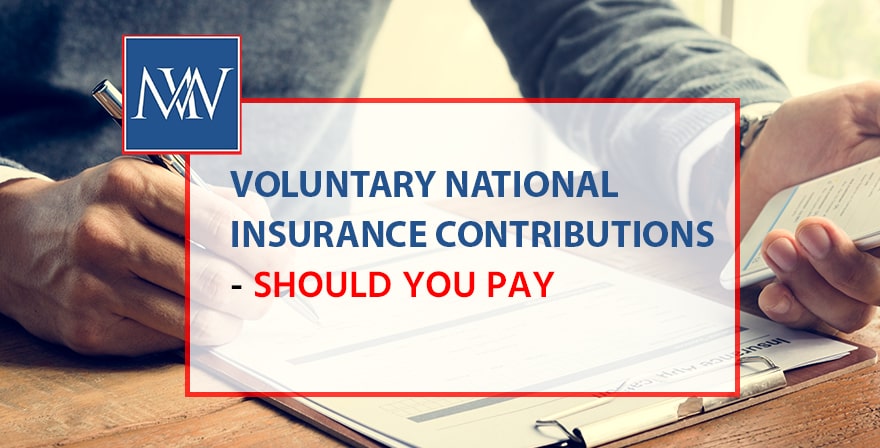
Voluntary National Insurance contributions – should you pay?
The payment of National Insurance contributions provides the mechanism by which an
an individual builds up their entitlement to the state pension and certain contributory benefits.
Different classes of contribution provide different benefit entitlements.
Employed earners pay Class 1 contributions where their earnings exceed the lower earnings
limit – set at £118 per week (£512 per month, £6,136 per year) for 2019/20. Self-employed
earners pay Class 2 and Class 4 contributions, but it is the payment of Class 2 contributions
only which provide pension and benefit entitlement. A self-employed earner is liable to pay
Class 2 contributions where their earnings from self-employment exceed the small profits
threshold, set at £6,365 for 2019/20. Where profits from self-employment are below the
small profits threshold, the self-employed earner is not liable to pay Class 2 contributions but
is entitled to do so voluntarily. For 2019/20, Class 2 contributions are payable at the rate of
£3 per week.
Qualifying year
A year is a qualifying year is contributions have been paid for all 52 weeks of that year. If
there are some weeks for which contributions have not been paid, the year is not a qualifying
year. However, contributions can be paid voluntarily to make up the shortfall and turn a non-
qualifying year into a qualifying year.
How many qualifying years are needed?
An individual needs 35 qualifying years to receive the full single-tier state pension payable to
those reaching state pension age on or after 6 April 2016. To receive a reduced single-tier
state pension, at least 10 qualifying years are needed.
Should voluntary contributions be paid?
Voluntary contributions may be paid to make up the shortfall for a year where Class 1 or
Class 2 contributions were not paid for the full 52 weeks or for a year for which there was no
liability to either Class 1 or Class 2.
Before paying voluntary contributions, it is necessary to ascertain whether the payment of
such contributions would be worthwhile. The starting point is to check your state pension.
This can be done online at www.gov.uk/check-state-pension.
If you already have 35 qualifying years (or will do by the time state pension age is reached),
there is no benefit in paying voluntary contributions. However, if you have less than 35
years, it may be worthwhile to increase your state pension. Likewise, if by state pension age
you will have some qualifying years but less than 10, it may be worthwhile paying sufficient
voluntary contributions to secure a minimum pension.
Class 3 contributions
Class 3 contributions are voluntary contributions and can be paid to boost the state pension.
For 2019/20, Class 3 contributions cost £15 per week. Thus, at these rates, to increase the
state pension by 1/35 th by paying voluntary Class 3 contributions for a year will cost £780.
For 2019/20, the single-tier state pension is £168.60 per week, so at 2019/20 rates, each
extra qualifying year (up to 35) is worth £4.82 per week.
Class 3 contributions must normally be paid within six years from the end of the tax year to
which they relate – although extended time limits in certain cases.
Voluntary Class 2
Where a person is entitled but not liable to pay Class 2 contributions, paying Class 2
contributions voluntary is a cheaper option, at £3 per week for 2019/20 rather than £15 per
week.
To know more about National Insurance contributions, Book a Meeting or contact us for more details.
Need Accountancy Support?
For information on bespoke training, or if you have any other questions for Makesworth Accountant, please fill in your details below
















 151
151